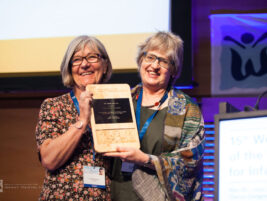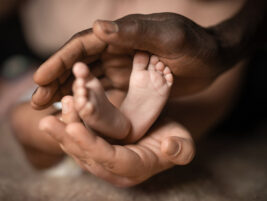Introduction
The creation of WAIMH was, in itself, a declaration of the infant’s rights for mental health, as reflected in its 5 purposes described in the bylaws:
«The ASSOCIATION has been organized to operate exclusively for scientific, charitable and educational purposes as follows:
- To operate exclusively for charitable, scientific and educational purposes, and more specifically to research and study throughout the world, the mental development and mental disorder in children from conception through three years of age;
- To facilitate international cooperation among individuals concerned with promoting conditions that will bring about the optimal development of infants and infant-caregiver relationships;
- To encourage the realization that infancy is a sensitive period in the psychosocial development of individuals;
- To promote education, research, and study of the effects of mental development during infancy on later normal and psychopathological development; and to promote research and study of the mental health of the parents, families and other caregivers of infants;
- To promote the development of scientifically based programs of care, intervention, and prevention of mental impairment in infancy.”
The infant (from birth to age of 3 years) by reason of his physical and mental immaturity and absolute dependence needs special safeguards and care, including appropriate legal protection, before as well as after birth.
As professionals who work with infants and parents within different cultures and societies, we feel there is a need for specifying its rights, beyond what has been already included in the Declaration of Children’s Rights». As detailed in the Declaration of Children’s Rights, the first three principles deal with nondiscrimination, protection by law and the right to an identity. Principle 4 states an entitlement to growth and development in health, with adequate pre-natal care, nutrition and medical services. Principle 5 states provisions for children with special needs. Principal 6 asserts the child’s needs for love and understanding from parents and caregivers as well as the obligations of society to provide support «in an atmosphere of affection and moral and material security». Principle 7 asserts the right to education, play and recreation. Principles 8 and 9 deal with priorities for the child for obtaining protection in the midst of adversity, neglect, cruelty and exploitation. Principle 10 asserts the right of the child to be brought in an atmosphere of tolerance as opposed to exposure to racial or religious discrimination.
This Declaration of the Rights of the Infant is drafted in order to bring to public awareness world-wide the foundational importance of the first three years of life as a period of unique sensitivity to environmental influences that may have enduring effects on later development. The young child’s capacity to experience, regulate, and express emotions, form close and secure relationships, and explore the environment and learn are fundamental to mental as well as physical health throughout the life span.
Basic Principles of Infant Rights
- To become a full member of his/her family, and be registered as a citizen straight after birth.
- To be given the same value to life, regardless of gender or any individual character.
- To be given nurturing caregiving, including safety, adequate nutrition, and a loving relationship.
- To have his/her most important attachment relationships and their continuity valued and protected.
Public social and health policy areas that should be informed by these principles:
The provision of preventive physical and mental health hygiene, starting from pregnancy, through medically wellinformed prenatal care, emotional support for parents, and early detection of physical and emotional threats to well-being. The provision of access to evaluation and treatment by trained professionals who are culturally sensitive and knowledgeable about early development and emotional health.
The provision of adequate time for parents to get to know their infants and become skilled in providing for their infant’s care and comfort, through adequate social policies such as parental leave.
As needed, the provision of access to early educational programs that promote cognitive and socio-emotional development .
As needed, the provision of access to effective mental health treatment that alleviates infant’s suffering.
References
The Declaration of the Rights of the Child, adopted by the General Assembly of the United Nations, 1959; taken verbatim from the internet Office of the High Commissioner for Human Rights in Geneva – 6pp.
Early Child Development: A Powerful Equalizer. Final Report for the WHO’s commissission on the Social Determinants of Health, composed by Lori G.Irwin, Arjumand Siddiqi, & Dr Clyde Hertzman, June 2007.
Early Childhood Matters, Bernard van Leer Foundation, 2009
The UN Committee on the Rights of the Child. www2.ohchr.org/English/bodies/crc/index.htm
Council of Europe: Commissioner for Human Rights www.coe.int/t/commissioner
NGO Group for the Convention on the Rights of the Child www.childrightsnet.org
Young children’s rights and public policy: Practices and possibilities for citizenship in the early years. Glenda MacNaugthon, Patrick Hugues, Kylie Smith, Children & Society, vol. 21(6), 2007
Draft proposal for the Declaration of Infant’s Rights
Authors
WAIMH Board,
United States








